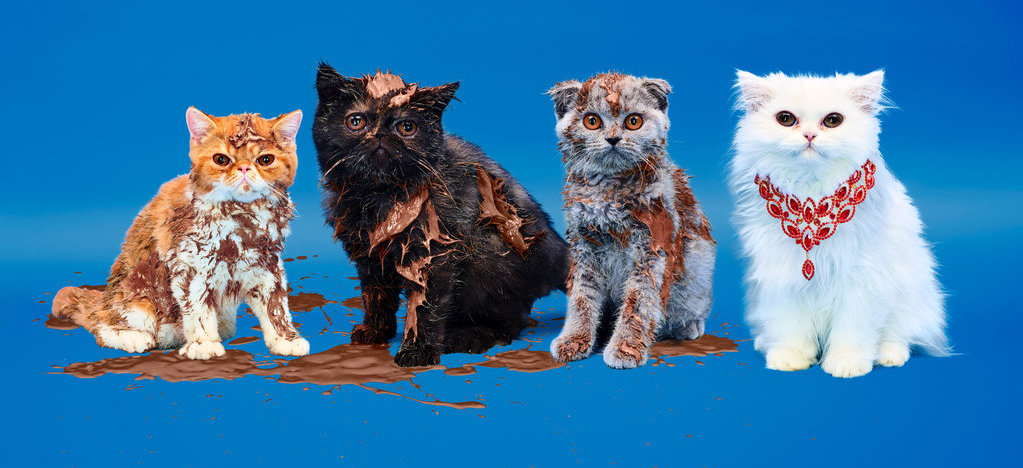NYTimes Magazine special issue on the future of the internet

Online Cesspool Got You Down? You Can Clean It Up, For a Price
By Kevin Roose
A new “luxury internet” is poised to make the online experience even more unequal than it already is.
It’s not surprising that given the choice between a free, seedy internet and a costly, orderly one, more people are opening their wallets. What is surprising is how quickly the mood has shifted. Paying for goods and services online used to mean you were an easy mark – someone too lazy or unsophisticated to figure out the necessary hacks and workarounds. Now, subscriptions are a status symbol. […]
So far, most of our hand-wringing about “filter bubbles” and algorithmic sorting has taken place in the context of partisan politics. We find it disturbing that liberals and conservatives see such different news stories in their Twitter feeds, or that Google results are tailored to our preferences. But we have not fully appreciated how much of our internet experience is shaped by socioeconomic status, and the magnitude of the tax the internet imposes on lower-income users in the form of data-sucking devices and predatory ads.
China’s Internet is flowering …and it might be our future
By Yiren Lu
What most Westerners don’t know about China’s highly integrated approach to mobile apps: It’s amazing.
In early 2017, WeChat introduced miniprograms. In the two years since then, businesses have created more than a million of them, equal to half the number of iOS apps available in Apple’s App Store. […]
Miniprograms aren’t do-everything miracles, of course – they languish without good marketing, can be slow and still require development resources. They also tie the businesses tightly to WeChat, which may eventually work against their financial and strategic interests. But their success in China provides a fascinating look into an alternative vision of the mobile internet, one that is integrated across multiple dimensions and that is in essence a single large market. What sorts of innovations does that engender? What sorts of tensions does that create? Is it a better architecture than our Western one, in which each business has its own mobile app, existing in isolation, downloaded but idle for large chunks of the day?
Even nobodies have fans now. (For Better or Worse.)
Online fan culture clings to everything. Case in point: podcasts.
All across the podcast realm, from the heights of self-help to the depths of true crime, imagined relationships are blossoming. Listeners may press play for the content, but many of them eventually come to nurture something like a one-way friendship with the hosts. […]
Among sociologists and armchair theorizers, this unique type of pining is known as a parasocial relationship – a term coined in 1956 to describe the connection between television viewers and a new class of entertainment personalities, including announcers, game-show hosts and anyone else who spoke in direct address to the camera. […]
Parasocial relationships are, by definition, one-sided, but like normal friendships, they can deepen over time, enriched by the frequent and dependable appearance of the charming persona on the television set. Podcasts, with their own unique set of formal quirks, are perhaps even better poised to foment this kind of bond.
Finding truth online is hard enough. Censors make it a labyrinth.
By Suzy Hansen
Under President Erdogan’s censorship regime, Turks can easily find everyday information. But they never fully know what they’re missing.
A heavily censored society not only loses access to information; it ceases to know itself. The greatest loss the Turks face under Erdogan might be their knowledge of one another.
What do teens learn online today? That identity is a work in progress
By Elizabeth Weil
The popularity of makeup-tutorial artists like Antonio Garza speaks to the power of self-transformation in an era when everyone is on display.
Part of the terror of the internet, for the olds, is that this technology exploits flaws in our thinking. Pre-internet, the prevailing belief was that we had real selves and fake selves, and we cast judgment on the fakes. We took for granted that we should at least try to present ourselves to the world as coherent people with unified personalities. An avatar could only mean trouble (and often did): an alter ego, an outlet, for the excised bits; a convenient, nearly irresistible portal for the parts of ourselves we had repressed.
This foundational (maybe Puritan?) belief in the integrated self has been helpful, even necessary, in real life, because in real life we need to deal with one another in time and space. Thus it’s nice if our fellow humans are predictable, and you have some idea of what you’ll be dealing with when a person shows up. There are whole branches of psychology dedicated to trying to help us keep ourselves together. And, of course, rafts of diagnoses – bipolar, schizophrenia, multiple personality, borderline personality – for those of us who fail to do this well.
And yet, at the same time, we know it’s a ruse. We are, all of us, deeply, inalienably contradictory and chaotic. In the practical world, we pretend it’s not true. But in art, if people capture this multidimensionality beautifully enough – “Do I contradict myself? Very well then, I contradict myself” – we herald their genius and praise them for it.
This chaos – this cubism, this unleashing of our multiple selves – is a feature, not a bug, of the online world. It’s arguably its defining characteristic for those who grew up there.



